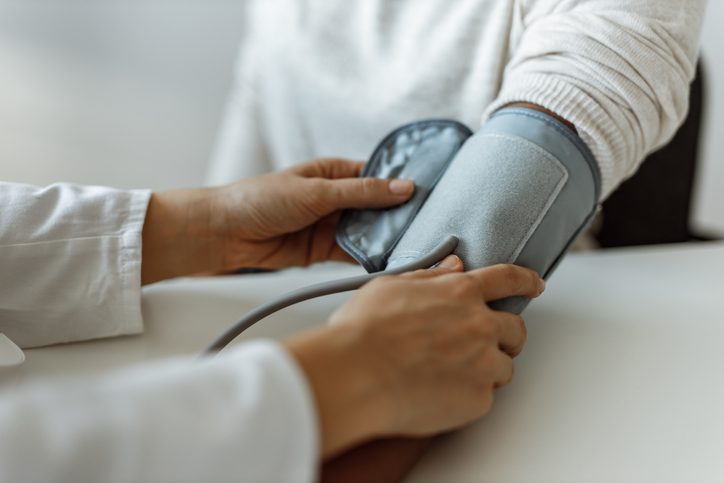Aside from making the decision to enter treatment for addiction, detox is one of the most important parts of the recovery process. It is also one of the most feared parts of the recovery process, since detox has long been notorious for being an uncomfortable, scary process. Detox has evolved to be much more comfortable and safe, and something that anybody suffering from addiction can see to the other side.
Is Detox During Recovery Painful?
If you are addicted to alcohol or drugs, you know how horrible it feels when you have not used in a while. You start to experience painful symptoms, and the urge to use skyrockets. Withdrawal can feel debilitating, and the thought of having to experience this for days on end in order to become sober might be too much for many to bear. This can unfortunately deter people away from getting the help they desperately need. New and safe methods of detox can not only help your withdrawal symptoms, but can help curb your cravings as well.
Withdrawal Symptoms During Medical Detox in Recovery
Withdrawal symptoms occur when someone has not used the substance that their body is dependent on in a while. During addiction, the brain essentially becomes rewired to believe that it requires the substance in order to function, and when it is not supplied, the brain basically goes into panic mode. Once the body is cleared of the substance, the brain can revert back to no longer needing the substance and withdrawal symptoms will subside.
Withdrawal symptoms vary depending on the length of the addiction, severity of the addiction and the type of substance being used. However, buy and large, withdrawal symptoms can include:
- Nausea
- Vomiting
- Shaking or tremors
- Anxiety
- Sweating
- Headache
- High blood pressure
- Racing or irregular heartbeat
- Fatigue
- Irritability
- Insomnia
- Change in sleeping and eating patterns
Alcohol is different from other substances in that its withdrawal symptoms can actually be deadly. This is one reason why detoxing alone is never recommended, and should be done safely under the care of medical professionals. Detoxing should also never be done alone because cravings are at an all-time high during withdrawal, and relapse is extremely likely.
What Happens During Medical Detox?
When someone enters treatment for addiction, they will be asked a host of questions during intake so that the facility can best decide their course of action for treatment. You will need to let the facility know such things as:
- What substances you are addicted to
- The last time you used
- The severity of your addiction
- The consistency of your use
- Whether you have any co-occurring disorders, such as chronic pain, anxiety or depression
Once a course of action has been determined, you will be able to have access to medications to help ease your withdrawal symptoms. You will also be given medications to stop your cravings so that you can begin to focus on your recovery as stress-free as possible. Once you have overcome the detox process, you will be given an individualized treatment plan created specifically for your needs.
How Long Does Detox Last?
The length of detox can vary for each person. Since no two addictions are the same, no two detox processes are the same. One person addicted to opioids can experience many withdrawal symptoms, while another may not. Detox can last anywhere from a few days to a few weeks, all depending on the length and severity of the addiction.
Although all detox lengths can vary, a general ballpark guideline can be:
- Alcohol: 3 to 7 days
- Benzodiazepines: 1 to 7 days
- Cocaine: 3 to 5 days
- Crystal Meth: 1 to 10 days
- Opioids (including heroin and prescription opioids): 7 days
- Methadone: 2 weeks
- Suboxone: 4 weeks
Once you begin the detoxificatoin process, it is very important to see it through to the other side. Finishing detox allows you to see how good and clear you feel without the substance in your body. This will make you feel invigorated, and ready to stay on the right path to long-term recovery.
Transitioning to a Drug-Free Lifestyle
Whether you decide to receive outpatient treatment or inpatient treatment, making your sobriety and recovery a priority is extremely important after the detox process. Most relapses occur within the first 90 days of sobriety, so it is important to accept medical help for your withdrawal symptoms and cravings, should it be recommended to you.
It is also important to take your treatment program seriously, lean on your support group and immerse yourself into your treatment experience. Finding the right treatment center for you can make all the difference when it comes to recovery. At Pinelands Recovery Center, we are here to help develop a personalized treatment plan for your specific needs.
The sooner you are able to begin treatment and focus on therapy, the better the chances you will have of living a life free of addiction. At Pinelands Recovery Center, we want you to be as comfortable as possible, and it all starts with a positive medical detox experience. Our recovery program is not a revolving door treatment program; it is a recovery model designed to help clients go on to lead productive, happy lives. For more information, contact us today.
Related Articles from Pinelands Recovery Center:
